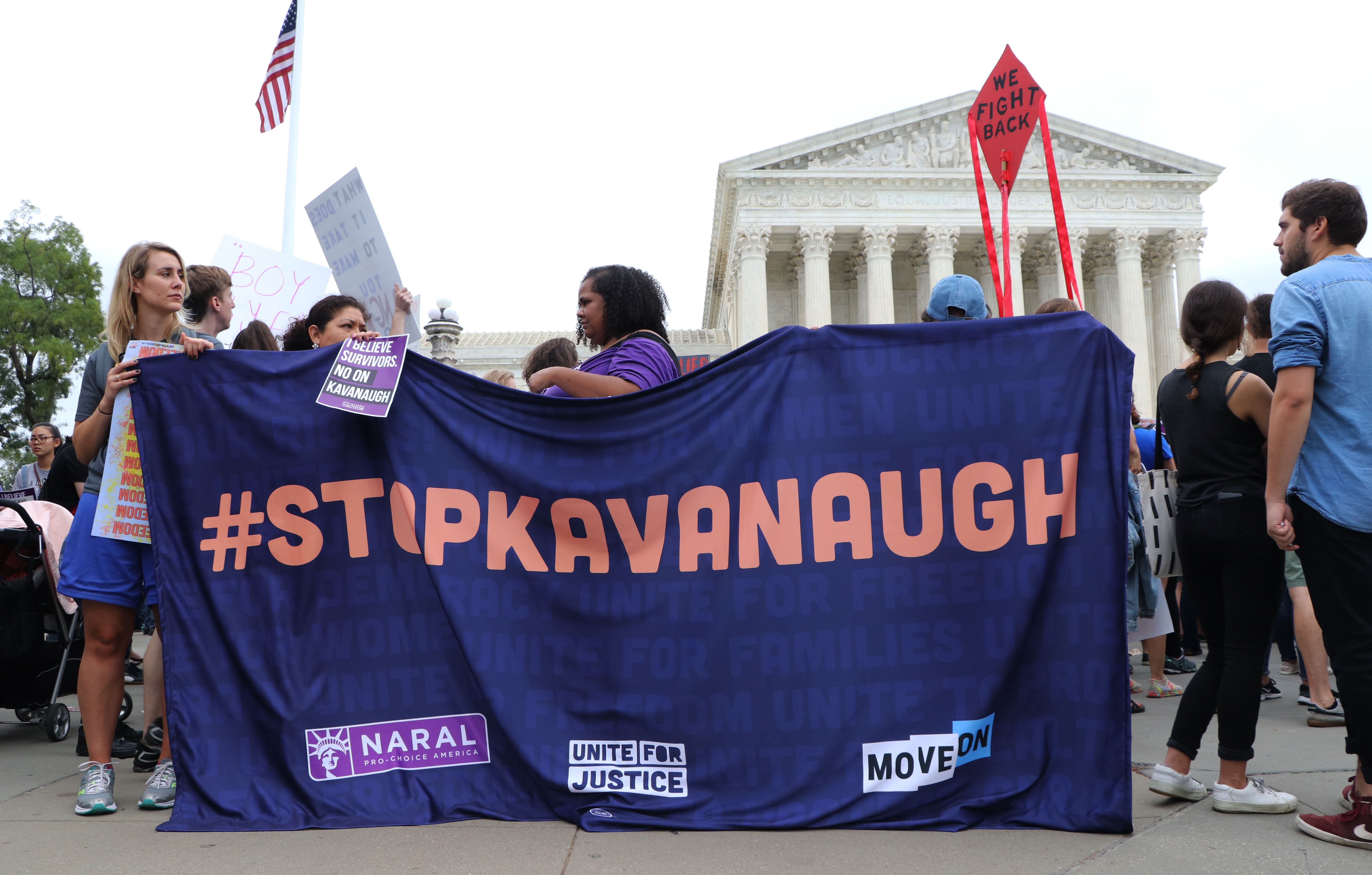Views expressed in opinion columns are the author’s own.
Brett Kavanaugh’s confirmation to the Supreme Court on Saturday is the latest in a years-long series of blows to those who care about things like democracy, decency and human rights. The hits, as they say, just keep on coming. Accompanying the news of his confirmation came a particular hollow, empty sort of feeling that I have identified as the knowledge that the world is exactly as awful as I suspected, and it won’t be getting any better anytime soon.
Contrast this feeling with the blind rage and terror of the 2016 election, when many of us simultaneously learned that the world was much more awful than we thought it was and would be getting even worse; or the dull fury incited by most of Trump’s actions since, which were awful in a predictable way but no less harmful because of it. Rather, the fact of Kavanaugh’s confirmation is a unique sort of evil in that it’s neither particularly shocking nor particularly cataclysmic, but painful nonetheless.
Of course, Kavanaugh will surely make the country a worse place during his tenure on the Court. As an arbiter of legal opinion, however, he is singularly unremarkable and unlikely to make the country substantially worse than any other conservative jurist Trump might have nominated. His confirmation does not suddenly endanger decades of legal progress; the danger was there the moment Trump took office.
Similarly, it’s not as if Saturday’s vote revealed something new about the depths to which American political life has sunk. The extent of that depravity was exposed in the days and weeks leading up to the vote, where we witnessed about half the men and women (mostly men) that form our nation’s most important legislative body declare, in so many words, that multiple credible allegations of sexual assault give them no pause whatsoever in confirming the accused to serve on the highest court in the land.
Consider a world in which Kavanaugh loses the confirmation by a vote or two. This is still a world in which a survivor was outed against her will, forced to relocate and hire security after receiving death threats, compelled to recount the most traumatic moment of her life in front of an audience of millions and publicly mocked by the president for her actions; in which other survivors throughout the nation have been subjected to a 24/7 media blitz saturated with graphic descriptions of sexual assault, potentially bringing up their own past trauma; in which over half of Republicans favored confirming Kavanaugh even if the allegations were proven true beyond a reasonable doubt. Yet most depressingly, this is still a world in which a man credibly accused of sexual misconduct sits on the Supreme Court (hey there, Clarence Thomas).
None of this is to say that Kavanaugh’s confirmation is harmless. Most saliently, it is a slap in the face to survivors everywhere and further indication that there is seemingly no limit to what powerful men can do and get away with. It also carries with it the distressing feeling that what Dr. Christine Blasey Ford went through was in vain — though this is not necessarily the case, as Megan Garber has argued in The Atlantic. The fact that these are perhaps the least worst consequences of the process is what engenders the feeling I described.
Let’s not confuse this feeling with hopelessness, nor invite the latter. We should allow Kavanaugh’s confirmation to further steel us in the fight against plutocracy and misogyny. We should learn from the experiences of Dr. Ford, as we should have learned from Anita Hill, and not repeat the same mistakes when the next political figure is inevitably accused of misconduct. We should treat Saturday’s vote as a symbol of much of what is evil and damaged about our government. The unfortunate fact, however, is that it’s just that — a symbol. The damage had already been done.
Joey Marcellino is a junior jazz saxophone, physics and philosophy major. He can be reached at fmarcel1@terpmail.umd.edu.



